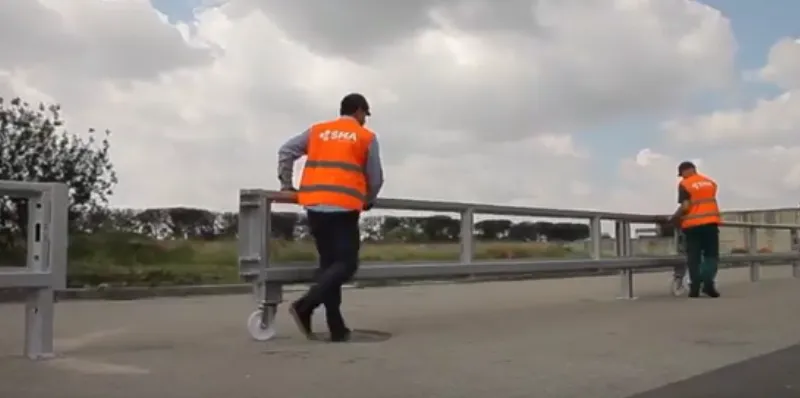Cycles are a popular form of transportation in Japan. However, they can take up a lot of public space when parked. Japanese construction company Giken has come up with the answer; its Eco Cycle is an anti-seismic automated underground storage system. Buried eleven metres below ground, Eco Cycle has a capacity of around 200 cycles and each one takes around thirteen seconds to store. Users attach a sensor to their cycle, which alerts the Eco Cycle centre that a cycle is on its way. The user then rolls the f
August 9, 2013
Read time: 2 mins
Cycles are a popular form of transportation in Japan. However, they can take up a lot of public space when parked.
Japanese construction company7445 Giken has come up with the answer; its Eco Cycle is an anti-seismic automated underground storage system. Buried eleven metres below ground, Eco Cycle has a capacity of around 200 cycles and each one takes around thirteen seconds to store.
Users attach a sensor to their cycle, which alerts the Eco Cycle centre that a cycle is on its way. The user then rolls the front wheel into the opening of the parking machine, stands clear, and pushes a green button. In about eight seconds the bike is pulled into the kiosk and a robotic lift stores the cycle. To retrieve his cycle, the user simply waves his card over a sensor and the robotic arm pulls out the bicycle and brings it back up in approximately thirteen seconds.
Japanese construction company
Users attach a sensor to their cycle, which alerts the Eco Cycle centre that a cycle is on its way. The user then rolls the front wheel into the opening of the parking machine, stands clear, and pushes a green button. In about eight seconds the bike is pulled into the kiosk and a robotic lift stores the cycle. To retrieve his cycle, the user simply waves his card over a sensor and the robotic arm pulls out the bicycle and brings it back up in approximately thirteen seconds.









